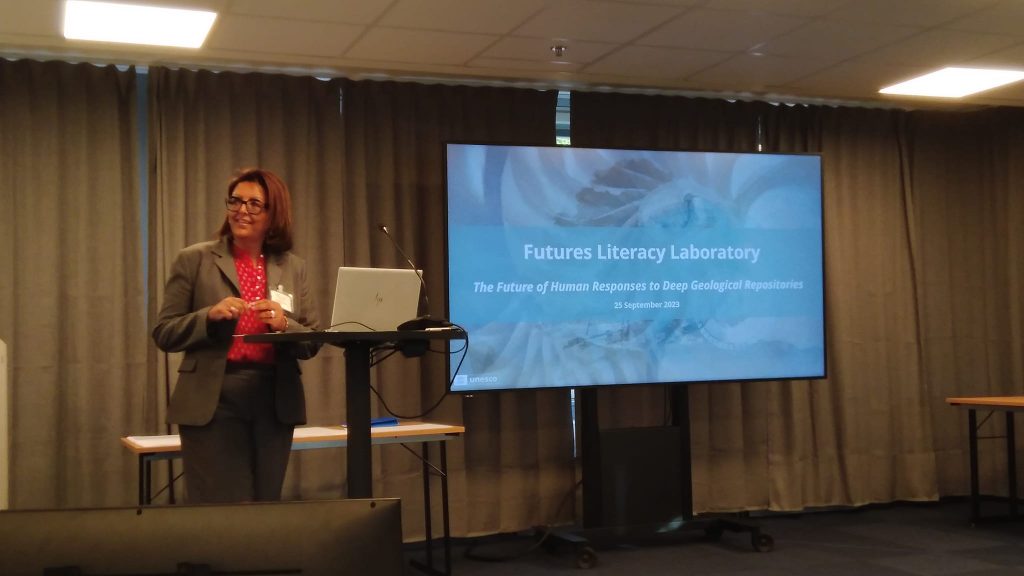Futures Literacy Laboratory
2023-09-25
Cornelius Holtorf and Anders Högberg co-organized and co-ran (with C. Kavazanjian, UNESCO, Paris, N. Christophilopoulos, UNESCO Chair on Futures Research, Greece, and M. Packer, OECD/NEA, Paris) the first Futures Literacy Laboratory in collaboration between UNESCO and OECD/NEA.

Picture: Rebecca Tadesse, Head of Radioactive Waste Management and Decommissioning Division at OECD Nuclear Energy Agency, welcomes participants
Dedicated to exploring “The Future of Human Responses to Deep Geological Repositories” a total 17 international participants were present at the Lab which was held at the Swedish Radiation Safety Authority (SSM) in Stockholm (25 September 2023).
The Lab established the usefulness of the skill of futures literacy in the context of awareness preservation concerning long-term repositories of nuclear waste. Futures literacy encompasses both an awareness of the large significance of present-day assumptions about the future and an understanding of multiple alternative futures lying ahead of the contemporary world.






[…] The new funding for this and a number of additional smaller projects, means that the Climate Heritage Network is…
[…] Chair on Heritage Futures « Culture, cultural heritage and COP26 […]
[…] mer på Unescoprofessurens blogg http://blogg.lnu.se/unesco/?p=1061 Besök Öland 2050! […]